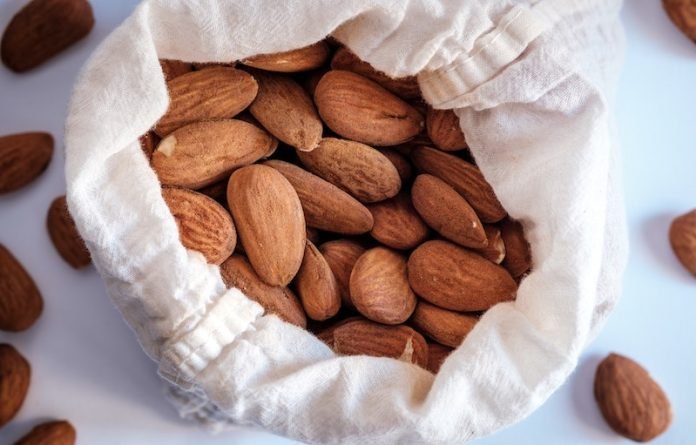
In Australia, two in three (12.5 million) adults are overweight or obese. Globally, nine billion adults are overweight with 650 million of these being obese.
Rates of overweight and obesity are a major public health concern, and research shows changing appetite through better hormonal response may be key to managing body weight.
In a new study from the University of South Australia, scientists found weight loss is never an easy nut to crack, but a handful of almonds could keep extra kilos at bay.
They examined how almonds can affect appetite and found that a snack of 30–50 grams of almonds could help people cut back on the number of kilojoules they consume each day.
The study found that people who ate almonds—as opposed to an energy-equivalent carbohydrate snack—lowered their energy intake by 300 kilojoules (most of which came from junk food) at the subsequent meal.
The aim of the study was to examine the hormones that regulate appetite, and how nuts—specifically almonds—might contribute to appetite control.
It showed that people who ate almonds experienced changes in their appetite-regulating hormones and that these may have contributed to reduced food intake (by 300kJ).
The team found that people who ate almonds had 47% lower C-peptide responses (which can improve insulin sensitivity and reduce the risk of developing diabetes and heart disease); and higher levels of a glucose-dependent insulinotropic polypeptide (18% higher), glucagon (39% higher), and pancreatic polypeptide responses (44% higher).
Glucagon sends satiety signals to the brain, while pancreatic polypeptide slows digestion which may reduce food intake, both encouraging weight loss.
The team says almonds are high in protein, fiber, and unsaturated fatty acids, which may contribute to their satiating properties and help explain why fewer kilojoules were consumed.
The findings of this study show that eating almonds produce small changes in people’s energy intake.
The team says even small, positive lifestyle changes can have an impact over a longer period. When we’re making small, sustainable changes, we’re more likely to be improving our overall health in the long run.
If you care about nutrition, please read studies about the best time to take vitamins to prevent heart disease, and vitamin D supplements strongly reduce cancer death.
For more information about nutrition, please see recent studies about plant nutrients that could help reduce high blood pressure, and these antioxidants could help reduce dementia risk.
The study was conducted by Dr. Sharayah Carter et al and published in the European Journal of Nutrition.
Copyright © 2022 Knowridge Science Report. All rights reserved.



